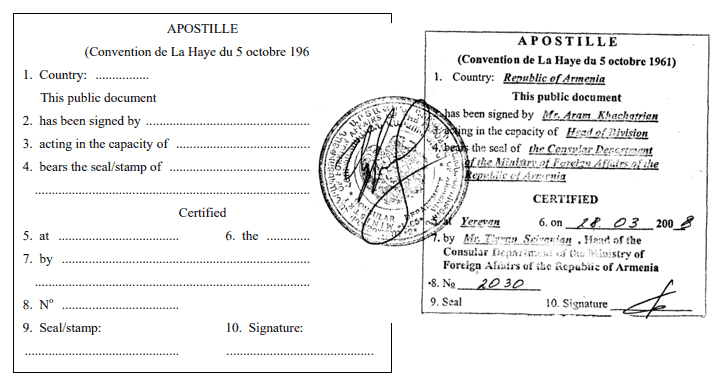Red-ribbon documents are now a thing of the past.
Beginning May 14, 2019, the Philippine Government will now accept apostilled (or apostillized) documents as a replacement for legalization or consular authentication with the Philippine Embassy.
May 14, 2019 is the official date when the Philippines accedes to the Apostille Convention. Beginning this date, the Philippines joins 116 other member-countries to the Convention. These include countries in the European Union, the United States, countries in South America and Africa, and Australia, to name a few.
This means that if a person needs to use, in another country, a public document issued in the Philippines, the Department of Foreign Affairs (DFA) will now issue an apostille, if the foreign country is a member of the Apostille Convention.
In reverse, if a person needs to use a foreign document issued abroad, the person will only get the document apostilled (or apostillized) by the government where the document was issued. Automatically, the apostilled (or apostillized) document may now be used in the Philippines.
The function of an apostille is similar to a red-ribbon consular authentication. Under the Apostille Convention, an apostille certifies “the authenticity of the signature, the capacity in which the person signing the document has acted and, where appropriate, the identity of the seal or stamp which it bears”.
It is different from consular authentication because the apostille is issued by the government of the country where the document was issued. It is the government that verifies and certifies that the document is legitimate.
On the other hand, for legalization or consular authentication, it is the consulate or embassy that consularizes or authenticates the document.
For example, if a document from the United States is to be used in the Philippines, prior to May 14, 2019, the document must be consularized in the Philippine Embassy before it can be used in the Philippines. If the same document is to be used in another country aside from the Philippines, the same document must be authenticated by that other country’s embassy or consulate. This means that if a document will be used in multiple countries that do not accept apostilles, the document must be legalized in each and every country’s embassy.
This is to be distinguished from the apostille, where only one apostille is required. The same apostilled (or apostillized) document may be used for all 117 member-countries to the Apostille Convention.
Those who are familiar with securing consular authentication are well-aware of its travails and difficulties. The lead time and cost, not to mention the long queues, travel and the limitations of the different embassies and consulates, in terms of manpower and resources, are only some of the many issues encountered in getting a document consularized.
Therefore, the accession of the Philippines to the Apostille Convention and the announcement of the Department of Foreign Affairs in the Philippines that it will now begin to issue apostilles, is a much-awaited development.
Nicolas & De Vega Law Offices is a full service law firm in the Philippines. You may visit us at the 16th Flr., Suite 1607 AIC Burgundy Empire Tower, ADB Ave., Ortigas Center, 1605 Pasig City, Metro Manila, Philippines. You may also call us at +632 4706126, +632 4706130, +632 4016392.

